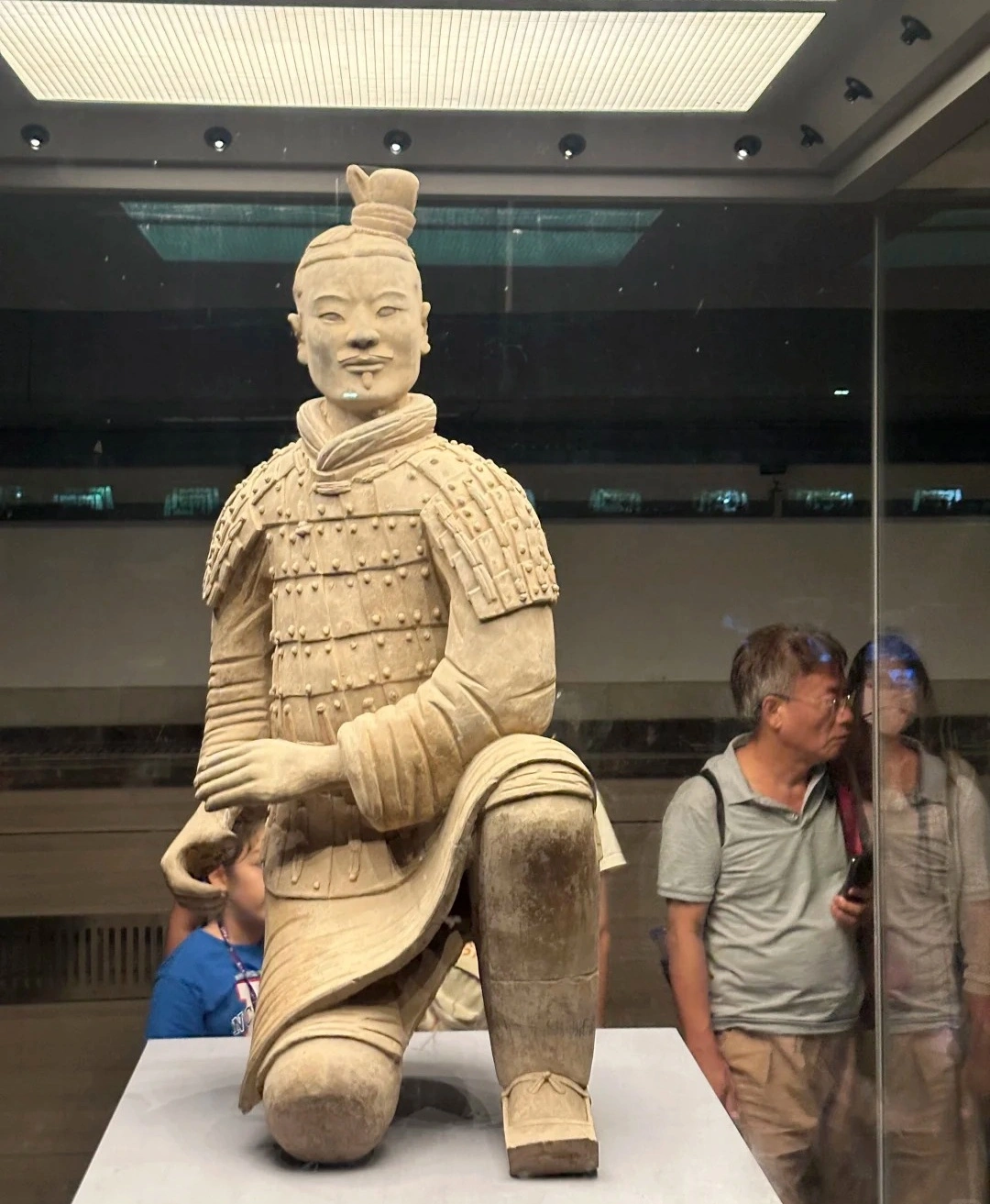Little New Year
Little New Year: Ushering in Spring and Welcoming Good Fortune in China

Little New Year, also known as the Minor Spring Festival or Xiaonian in Chinese, is a significant and vibrant festival in China that serves as a prelude to the much - anticipated Chinese New Year. Usually falling around the 23rd or 24th day of the twelfth lunar month, this festival marks the beginning of a series of preparations for the grand New Year festivities. It is a time when families start cleaning their homes, offering sacrifices to the Kitchen God, and engaging in various traditional activities to bid farewell to the old year and welcome the new one with good fortune and happiness. For travelers, Little New Year offers a unique opportunity to witness the authentic Chinese culture, experience traditional customs, and taste delicious festive foods. Let's delve into its historical roots, regional traditions, and the joyous spirit of celebration.
 Dates & Public Holidays: A Lunar Prelude to the New Year
Dates & Public Holidays: A Lunar Prelude to the New Year
▶ Lunar Date & Seasonal Significance
The festival occurs on the 23rd or 24th day of the twelfth lunar month. In traditional Chinese culture, this period is seen as a crucial transition. As winter draws to a close, people start to feel the warmth of spring in the air. It is a time to clean up the old and make way for the new. Families begin to prepare for the upcoming Chinese New Year by cleaning their houses thoroughly, getting rid of dust and dirt, which symbolizes sweeping away bad luck and making room for good fortune.
▶ 2025 Key Dates
Lunar Date: January 22 or 23, 2025 (23rd or 24th day of the 12th lunar month)
Note: Little New Year is not a national public holiday in China. However, it is widely celebrated across the country, and many people take time off work informally to participate in the festivities and prepare for the New Year.
▶ Public Holiday Schedule (2025 - 2029)
| Year | Lunar Date | Gregorian Date Range (Peak Celebrations) |
|---|---|---|
| 2025 | Jan 22 or 23 | Jan 21 - 24 |
| 2026 | Feb 10 or 11 | Feb 9 - 12 |
| 2027 | Jan 30 or 31 | Jan 29 - Feb 1 |
| 2028 | Feb 17 or 18 | Feb 16 - 19 |
| 2029 | Feb 6 or 7 | Feb 5 - 8 |
 Core Traditions & Celebrations: From Sacrifices to Cleaning
Core Traditions & Celebrations: From Sacrifices to Cleaning
▶ Sacrificing to the Kitchen God: A Heavenly Report
Symbolism
In Chinese mythology, the Kitchen God is believed to be a guardian of the household who keeps an eye on the family's behavior throughout the year. On Little New Year, it is time for the Kitchen God to return to heaven and report on the family's deeds to the Jade Emperor, the ruler of heaven. To ensure a favorable report, families offer sacrifices to the Kitchen God, usually consisting of sweet foods like maltose candies. The sweetness is believed to seal the Kitchen God's mouth, preventing him from speaking ill of the family and encouraging him to report only good things.
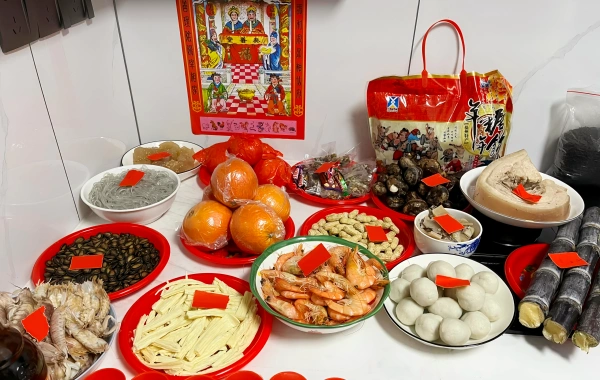
Regional Variations
- Beijing: In Beijing, many families will carefully clean the area around the Kitchen God's shrine and place fresh flowers and fruits as offerings. They also burn incense and paper money to show their respect and gratitude to the Kitchen God. Some families may even write a short prayer or wish on a piece of paper and place it with the offerings, hoping that the Kitchen God will convey their good wishes to the heavenly court.
- Sichuan: In Sichuan, in addition to the traditional sacrifices, families may also prepare a special dish called "Kitchen God's Feast," which includes a variety of local delicacies. After the sacrifice ceremony, the whole family will sit together and enjoy the feast, symbolizing unity and happiness.
▶ Cleaning the House: Sweeping Away the Old
Origins
The custom of cleaning the house on Little New Year has a long history. It is believed that by cleaning every corner of the house, one can get rid of bad luck and make room for good fortune in the coming year. This practice also reflects the Chinese people's pursuit of a clean and harmonious living environment.
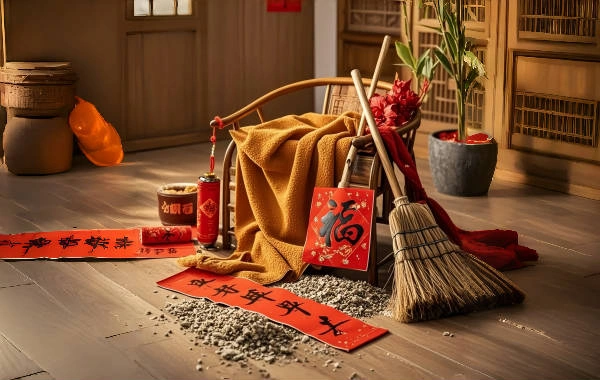
Modern Rituals
- General Cleaning: Families will start by cleaning the windows, walls, and floors. They will move furniture to clean the areas that are usually overlooked. In some rural areas, people will also clean the courtyard and the roof of the house, ensuring that every part of the home is spotless.
- Disposing of Old Items: Along with cleaning, families will also sort through their belongings and get rid of old and unnecessary items. This is seen as a way to let go of the past and make a fresh start. Some people will donate their old clothes and books to charity, while others may sell them at second - hand markets.
▶ Eating Festive Foods: Nourishing the Body and Soul
Symbolism
Food plays a central role in Little New Year celebrations. Many traditional dishes are prepared to symbolize good luck, prosperity, and a sweet life. These foods not only satisfy the taste buds but also carry deep cultural meanings.
Must - Try Disches for International Travelers
- Maltose Candies: These sticky and sweet candies are a must - have during Little New Year. As mentioned earlier, they are often used as offerings to the Kitchen God. For travelers, tasting maltose candies is a way to experience the sweetness and warmth of the festival. In Xi'an, you can find many street vendors selling freshly made maltose candies. The vendors will skillfully stretch the candy into long, thin strands, creating a fascinating visual spectacle.
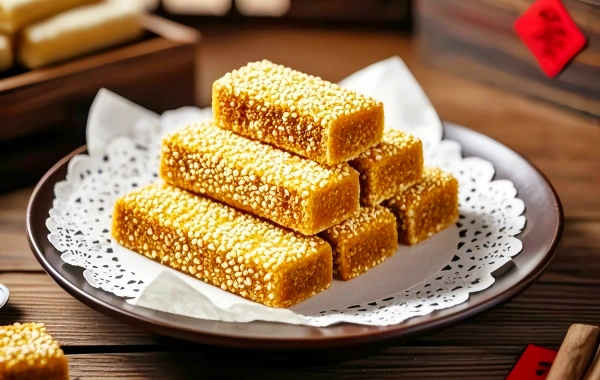
- Dumplings: Dumplings are a popular food in China, and they are also an important part of Little New Year celebrations. The shape of dumplings resembles ancient Chinese silver ingots, representing wealth and prosperity. Families will gather together to make dumplings, which is a fun and interactive activity. In Beijing's Hutongs, you can join local families in making dumplings and learn about the traditional techniques and fillings.
- Glutinous Rice Cakes: Glutinous rice cakes, or niangao in Chinese, are made from glutinous rice flour. They have a soft and sticky texture and are often steamed or fried. The pronunciation of niangao sounds similar to "higher year" in Chinese, which means that eating glutinous rice cakes on Little New Year symbolizes a better and more prosperous life in the coming year. In Shanghai, you can find a wide variety of glutinous rice cakes with different flavors and fillings in local bakeries and supermarkets.
 The Legend of the Kitchen God: A Tale of Loyalty and Protection
The Legend of the Kitchen God: A Tale of Loyalty and Protection
▶ Content
According to the legend, the Kitchen God was originally a mortal named Zhang Lang. He was married to a kind and virtuous woman, but he was unfaithful to her and eventually became poor and homeless. One day, he wandered to the house of his former wife, who, despite his past wrongdoings, took pity on him and gave him food and shelter. However, Zhang Lang was so ashamed that he jumped into the kitchen stove and was burned to death. The Jade Emperor was moved by his remorse and appointed him as the Kitchen God, tasked with guarding households and reporting on people's behavior.
▶ Significance
This legend emphasizes the importance of moral values such as loyalty, honesty, and repentance. It also reflects the Chinese people's belief in the existence of supernatural forces that oversee and influence human life. The Kitchen God is seen as a guardian who can protect the family from harm and bring good luck if treated with respect and gratitude.
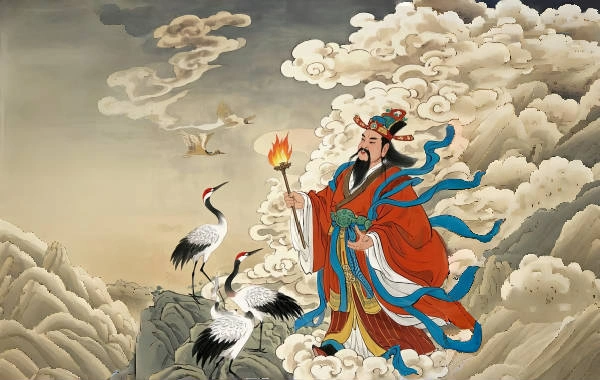
 Culinary Delights: A Feast for the Senses
Culinary Delights: A Feast for the Senses
▶ Must - Try Dishes for International Travelers
- Spring Rolls: Although spring rolls are commonly associated with the Spring Festival, they are also enjoyed during Little New Year. These crispy rolls are made by wrapping a mixture of vegetables and meat in a thin pastry shell and then deep - frying until golden brown. The round shape of spring rolls represents reunion and completeness, making them a perfect food for the festive season. In Guangzhou, you can find a wide variety of spring rolls with different fillings, such as shrimp, pork, and vegetables, in local restaurants.
- Noodles with Soybean Paste: This is a simple yet delicious dish that is popular in northern China. The noodles are usually hand - made and have a chewy texture. They are served with a rich and savory soybean paste sauce, along with various toppings such as cucumber slices, bean sprouts, and minced garlic. Eating noodles on Little New Year symbolizes longevity and a smooth life. In Tianjin, you can taste authentic noodles with soybean paste in traditional noodle shops.
▶ Symbolic Foods & Their Meanings
- Fish: Fish is a common dish during Chinese festivals, and Little New Year is no exception. The pronunciation of fish in Chinese, yu, sounds similar to "surplus" or "abundance." Eating fish on this day symbolizes a prosperous life with plenty of food and wealth. Families will often cook a whole fish and leave some of it uneaten, representing the hope of having a surplus in the coming year.
- Oranges and Tangerines: These bright - colored fruits are often displayed and eaten during Little New Year. In Chinese culture, oranges and tangerines symbolize good luck and wealth because their Chinese names sound similar to the words for "luck" and "wealth." They are also believed to bring happiness and joy to the family.
 Traveling During Little New Year: Tips & Destinations
Traveling During Little New Year: Tips & Destinations
▶ Essential Travel Advice
- Respect Local Customs: Little New Year is a time of great cultural significance in China. It is important to respect local traditions and rituals, such as not interrupting the sacrifice ceremonies or making loud noises during cleaning activities.
- Book Accommodations in Advance: Although not a major public holiday, some popular tourist destinations may experience an increase in visitors during the festival as people take time off to prepare for the New Year. It is advisable to book your accommodations well in advance to ensure availability, especially in cities known for their traditional Little New Year celebrations.
- Dress Appropriately: Since the festival usually falls in winter, the weather can be cold. It is best to dress warmly and bring a coat, hat, and gloves. If you plan to participate in outdoor activities, make sure to wear comfortable shoes.
▶ Top 5 Destinations for International Visitors
Beijing
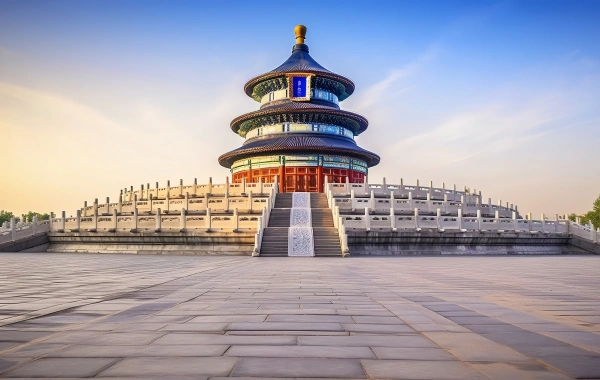
- The Temple of Heaven: During Little New Year, the Temple of Heaven may host special cultural exhibitions and performances related to the festival. You can learn about the traditional customs and rituals of sacrificing to the Kitchen God and other deities. The park around the temple is also a great place to see local people engaging in cleaning activities and preparing for the New Year.
- Wangfujing Snack Street: This bustling street is a paradise for food lovers. You can sample a variety of traditional Little New Year foods, such as maltose candies, dumplings, and spring rolls. You can also buy some festive souvenirs, such as red lanterns and paper - cuttings, to take home as a memento of your trip.
Xi'an

- The Bell and Drum Towers Square: The square is often the center of cultural activities during Little New Year. You can watch traditional folk performances, such as dragon and lion dances, and participate in the lively atmosphere. There are also many street vendors selling local snacks and handicrafts, allowing you to experience the authentic local culture.
- The Muslim Quarter: This vibrant area is known for its delicious food and unique architecture. During Little New Year, you can taste a wide variety of traditional Chinese and Muslim - style dishes, such as roujiamo (Chinese hamburger) and yangrou paomo (pita bread soaked in lamb soup). You can also visit the Great Mosque and learn about the Islamic culture in Xi'an.
Chengdu
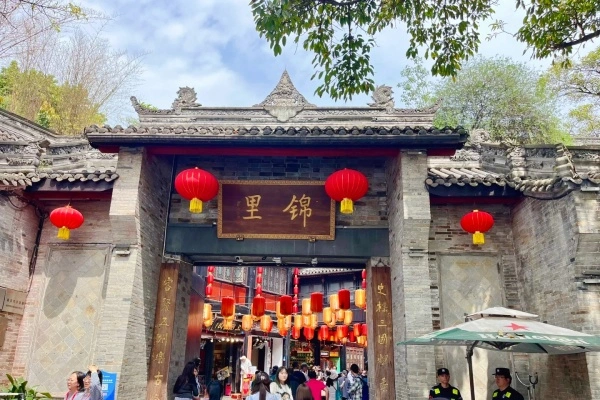
- Kuanzhai Alley: This ancient street is lined with traditional Sichuan - style buildings and is a popular tourist destination. During Little New Year, you can find many local restaurants serving traditional Little New Year foods and Sichuan snacks. You can also watch folk performances, such as Sichuan opera and face - changing, in the alley's theaters, experiencing the rich cultural heritage of Chengdu.
- Jinli Ancient Street: Jinli Ancient Street is a well - preserved ancient street that showcases the traditional architecture and lifestyle of Sichuan. During the festival, the street is decorated with red lanterns and other festive ornaments, creating a strong festive atmosphere. You can stroll along the street, enjoy the beautiful scenery, and buy some traditional handicrafts.
Hangzhou
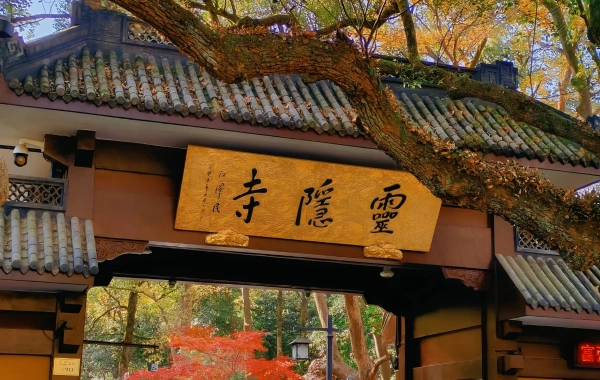
- West Lake: The serene West Lake provides a beautiful backdrop for the Little New Year celebrations. You can take a boat ride on the lake and enjoy the winter scenery while watching traditional performances on the shores. Some lakeside restaurants also offer special festival menus featuring traditional dishes, allowing you to savor the festive flavors while enjoying the picturesque view.
- Lingyin Temple: This famous Buddhist temple hosts special ceremonies during the festival to pray for good luck and prosperity. You can join the local worshippers in offering incense and prayers, and learn about the religious significance of the festival. The temple's architecture and surroundings are also worth exploring, providing a peaceful and serene environment for reflection.
Nanjing

- Confucius Temple: During Little New Year, the Confucius Temple area is filled with a festive atmosphere. You can visit the temple to pay your respects to Confucius and learn about traditional Chinese culture and education. There are also many shops selling traditional handicrafts and snacks, such as salted duck and sugar - coated haws.
- Fuzimiao Cultural and Commercial Street: This street is a great place to experience the local culture and cuisine. You can watch traditional performances, such as puppet shows and folk dances, and taste a variety of Nanjing - style dishes, such as duck blood and vermicelli soup and Nanjing salted duck.
▶ Hidden Gems Off the Beaten Path
Wuzhen Water Town, Zhejiang
- West Scenic Zone: This part of Wuzhen is known for its well - preserved ancient architecture and tranquil waterways. During Little New Year, the town is decorated with red lanterns and traditional decorations, creating a charming and festive atmosphere. You can take a boat ride along the canals, visit local workshops to learn about traditional handicrafts, and taste local snacks in the tea houses.
- East Scenic Zone: The East Scenic Zone has a more lively atmosphere with many shops, restaurants, and entertainment venues. You can watch traditional performances, such as shadow puppet shows and folk music concerts, and participate in various cultural activities. There are also many ancient buildings and temples that you can explore, learning about the history and culture of Wuzhen.
Pingyao Ancient City, Shanxi
- Ancient City Wall: The ancient city wall of Pingyao is a well - preserved example of Chinese ancient city defense architecture. During Little New Year, you can walk along the city wall and enjoy the panoramic view of the ancient city. The city is decorated with red lanterns and traditional decorations, creating a strong festive atmosphere.
- Rishengchang Former Bank: This is the first draft bank in China and is of great historical significance. During the festival, the former bank may host special exhibitions and cultural activities, allowing you to learn about the development of Chinese finance and the traditional business culture of Pingyao. You can also visit other ancient buildings in the city, such as temples and courtyards, experiencing the unique charm of this ancient city.
Fenghuang Ancient Town, Hunan

- Tuo River: The Tuo River runs through Fenghuang Ancient Town, adding a touch of charm to the town. During Little New Year, you can take a boat ride on the river and enjoy the beautiful night view of the town. The buildings along the river are decorated with colorful lights, creating a dreamy and romantic atmosphere.
- Ancient Streets: The ancient streets of Fenghuang are lined with traditional Miao and Tujia - style buildings. You can stroll along the streets, visit local shops selling handicrafts and souvenirs, and taste local snacks, such as spicy tofu and rice cakes. You can also interact with the local residents and learn about their unique customs and traditions.
 History & Cultural Evolution
History & Cultural Evolution
▶ Ancient Origins
- The origins of Little New Year can be traced back to ancient times when people had a deep reverence for nature and believed in the existence of various gods and spirits. The custom of sacrificing to the Kitchen God may have originated from the ancient practice of worshipping the hearth fire, which was essential for cooking and heating in ancient households. Over time, this practice evolved into the worship of the Kitchen God, who was seen as the guardian of the household.
- Han Dynasty (206 BCE - 220 CE) During the Han Dynasty, with the development of agriculture and the spread of Confucianism, Taoism, and Buddhism, Little New Year gradually took shape as a formal festival. The concept of the Kitchen God became more well - defined, and the rituals and customs related to sacrificing to the Kitchen God became more standardized. The custom of cleaning the house also became more widespread during this period, as people believed that a clean environment would bring good luck and prosperity.
▶ Modern Adaptations
- Cultural Integration: In modern times, Little New Year has integrated elements from different regions and cultures. While traditional customs such as sacrificing to the Kitchen God and cleaning the house are still widely practiced, new forms of celebration have emerged, such as cultural exhibitions, music concerts, and food festivals. This integration has made the festival more diverse and attractive to people of all ages.
- Tourism Promotion: Little New Year has become an important part of China's cultural tourism. Many tourist destinations now organize special events and activities during the festival to attract visitors and promote traditional Chinese culture. For example, some cities have built cultural theme parks or museums dedicated to Little New Year, providing a platform for tourists to learn more about the festival's history and customs.
 Embrace the Spirit of Renewal
Embrace the Spirit of Renewal
Little New Year is a unique and fascinating festival that reflects the rich cultural heritage and traditional values of China. Whether you are witnessing the ancient rituals, enjoying the lively performances, or savoring the delicious traditional foods, the festival invites you to embrace the spirit of renewal and prosperity. Come with an open mind and a sense of curiosity, and you will discover a world of cultural beauty and spiritual significance during Little New Year in China. Welcome to this extraordinary journey of celebration and rejuvenation!
Contact Us
What Our Clients Say?
Based on 10,000+ traveler reviews



